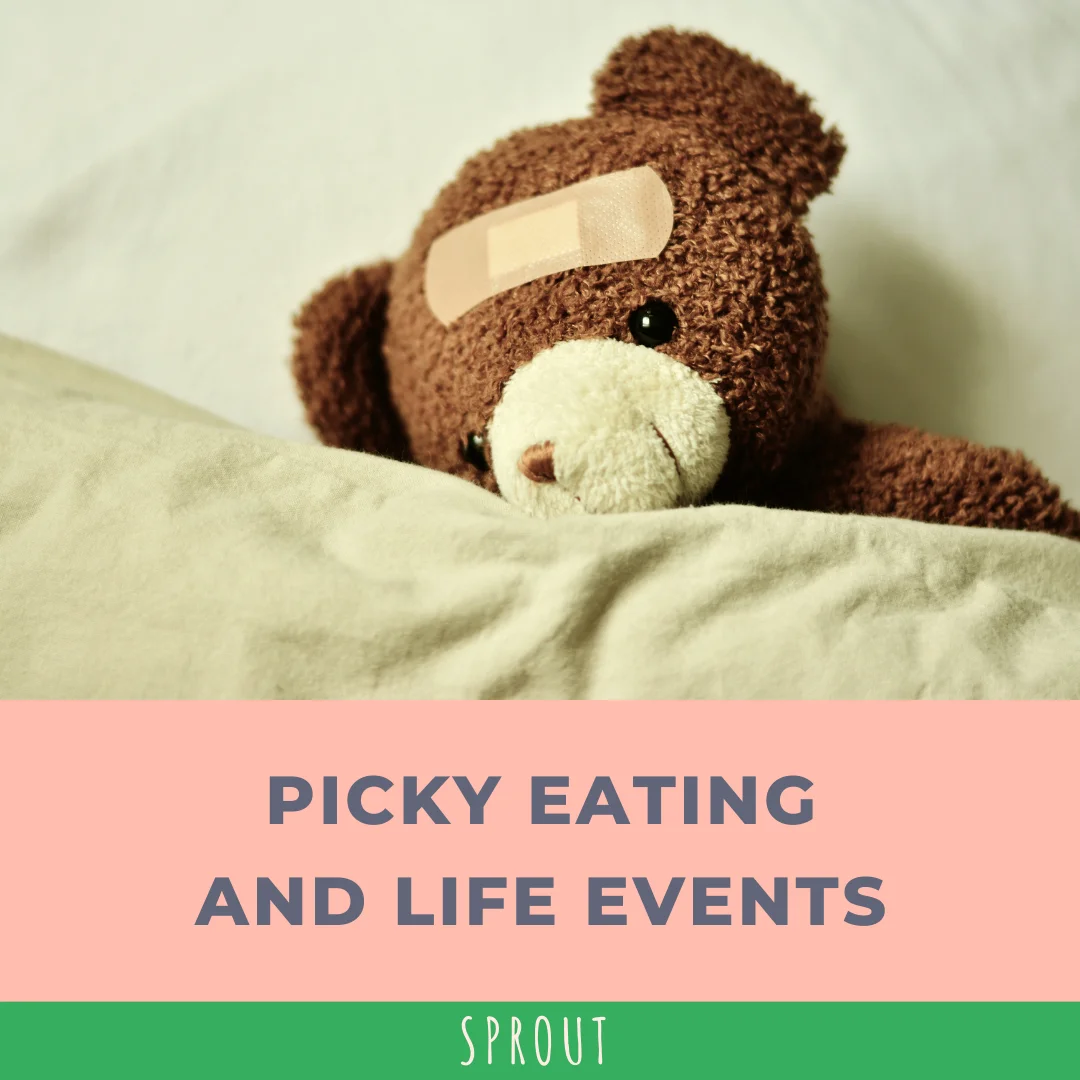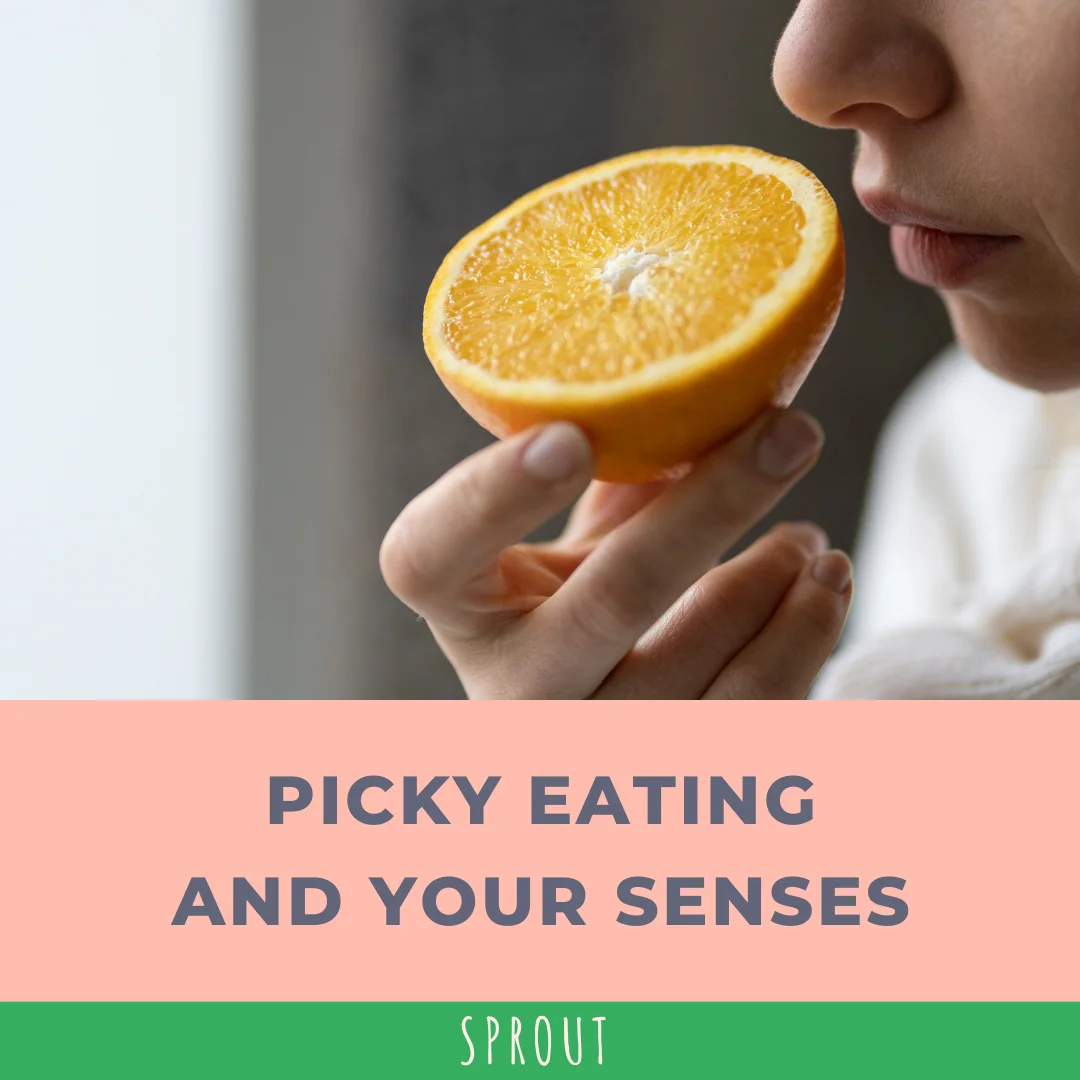Food “Neophobia” - or the fear of new foods, takes many people by surprise! Knowing about this behaviour and when to expect it can significantly reduce the stress and anxiety you might feel when it crops up for the first time. When children’s eating changes - seemingly out of the blue - it’s incredibly confusing! You may wrack your brains trying to figure out if they’re unwell, or if there’s something up with the food! But know that there’s nothing wrong with your cooking - it may just be a fear of the unfamiliar!
What age does it start?
When does this usually happen? Typically between 1 and 2 years of age. Parents often tell us that they noticed changes in their child’s eating around 18 months - and this fits with what the research says. But, we know that all children develop at different paces, so just like with walking and talking, the age that you begin to notice changes in eating can vary from one child to the next.
Why at this age?
Well - if you’re the parent of a toddler, you’ve surely noticed that a lot happens at this age! The toddler years are like a crash course in becoming a human - your little one is learning who they are as a person, how they relate to people, developing and practising physical abilities, and for many they’re getting used to new routines and schedules at nursery or daycare. In many ways, they’re becoming more independent and less reliant on their caregivers. Jump back a few hundred thousand years ago, and it makes sense that as toddlers became more independent they had to develop some scepticism to protect them from eating unfamiliar plants when foraging in the wild. So, that’s one theory about how this all started.
When does it stop!?
If you’ve hit the neophobic phase, you’re probably wondering when this
ends! Many children gradually become more confident with food, eating a
wider range again by about age 6. But it’s not always that simple.
Especially if there are other factors at play that make eating challenging,
or if certain patterns of responding develop in the family, then a fear of
new foods may persist throughout childhood, or even sometimes into
adulthood.
What can I do?
So, what’s the best way to respond to food neophobia to prevent it from escalating into a bigger issue? For more info - check out this blog [add link to ‘Can you cure food neophobia’], but here are the top 5 things to keep in mind:
· Serve 1-2 foods your child is familiar with (has eaten before) at every meal and snack - even if they’re temperamental about eating them.
· Don’t expect your child to eat at every meal/snack - and don’t take it personally when they choose not to. Many parents over-estimate the quantity of food and the frequency that their toddler needs to eat. Just calmly clear away the food at the end of the meal and move on with the next part of your day.
· Regularly eat with your child, so that they see a variety of food and can learn from you.
· Let your child engage with foods at their own pace - have foods available and eat them yourself, but don’t offer too frequently or push them to try things.
· Avoid offering alternatives during or after the meal - as this can quickly escalate into more refusal of foods your child regularly eats.
To sum up…
There you have it - a fear of new foods typically develops around 18 months, or somewhere between 1 and 2 years of age. If you’ve noticed a sudden change in your child’s attitude towards food - just know you’re not alone! Remember your child’s growth rate has slowed down since they were a baby, and they are busy developing in all kinds of ways. Stay calm if it looks like they’re eating less, skipping some meals, or becoming more sceptical about trying foods. The best you can do is stick to a regular routine, and avoid getting into battles or arguments about trying foods. This only adds stress for you and your little one - and at the end of the day, pursed lips will always win!

